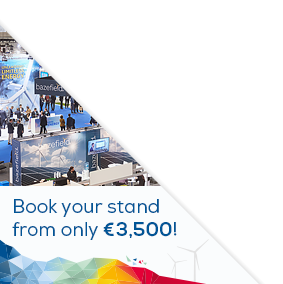Posters
Siblings:
ProceedingsProgrammeProceedingsSpeakersPostersContent PartnersElectrification StageMarkets TheatreR&I ActivitiesStudent DayProgramme Committee & abstracts reviewersPresenters dashboardCome meet the poster presenters to ask them questions and discuss their work
We would like to invite you to come and see the posters at our upcoming conference. The posters will showcase a diverse range of research topics and provide an opportunity for delegates to engage with the authors and learn more about their work. Whether you are a seasoned researcher or simply curious about the latest developments in your field, we believe that the posters will offer something of interest to everyone. So please, join us at the conference and take advantage of this opportunity to learn and engage with your peers in the academic community. We look forward to seeing you there!

PO193: Deep learning for the multivariate probabilistic forecasting of wind speed: application to floating offshore wind operations and maintenance
Robin Marcille, PhD student, France Energies Marines
Abstract
Maintenance operations are a challenge for the future development of floating offshore wind. Potentially harsher conditions at floating sites and floating to floating operations will imply a precise monitoring of met-ocean conditions, at locations where data collection is very challenging. Current strategies for the planning and execution of maintenance operations are based on the deterministic thresholding of numerical weather predictions (NWP) based on operability limits on wind and wave variables. Alpha factors are applied to the weather limits to downgrade the threshold and account of all uncertainty sources. Indeed, NWP models have limitations for short term forecasting and uncertainty estimation due to their high computational cost. In this context, deep learning methods can help complement the NWP models in the short-term forecasting and provide a comprehensive uncertainty estimation on the critical variables. Indeed, once trained, those models have a low computational cost and can hence allow for the near-live data assimilation of in-situ measurements. In this work, a deep learning architecture is proposed for the ultra-short-term multivariate probabilistic forecasting of wind speed at an offshore location. The proposed architecture encodes both the model data from Meteo France high resolution AROME model and the measurements from neighbouring coastal ground stations to predict the probability density of an unobserved target station. The forecast is then evaluated against state-of-the-art baseline models with regards to deterministic and probabilistic metrics. The problem statement is applied to a toy dataset MeteoNet shared by Meteo France for methodological development, with the application to coupled wind and wave as a perspective.







